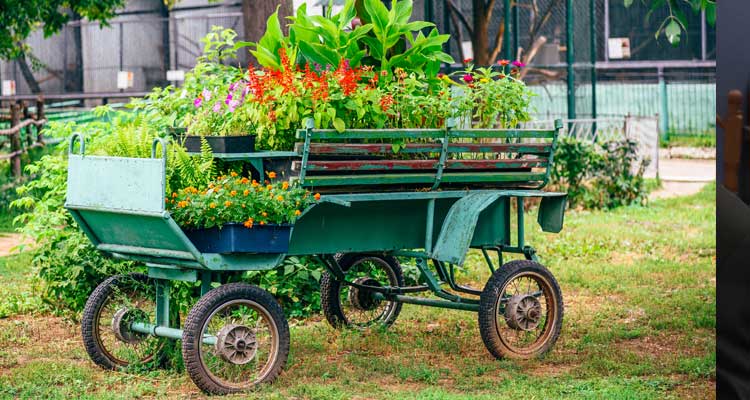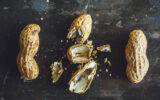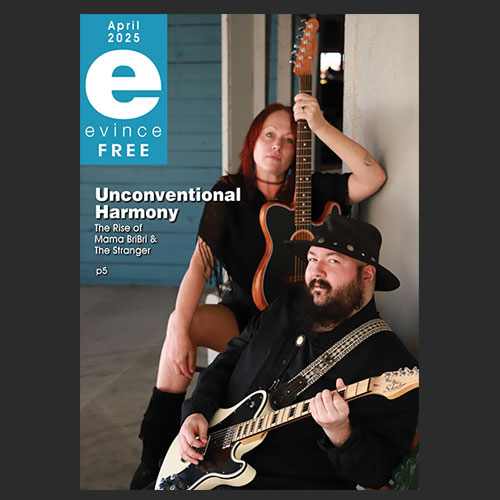(Scene: Linda is hauling Plant, swaddled in blankets in a child’s red wagon, on a scenic tour around the block.)
Linda: Plant, you’re heavy enough that hauling you up this hill in this wagon is running me subterranean.
Plant (leaves quivering like a dog leg vibrating ecstatically): Oh, joy; so warm is the sunshine.
L (sweating): Why are you so heavy?
P: Bushing out from consistent sunlight, water, plant food, plus you moved me to a bigger pot. Ceramic. I am rising up in the world.
L: I regret my decision to water you so liberally.
P: You parent me well.
L (puffing): I never expected to parent a plant. At least I’m getting credit for the increased step-count.
P: Then step lively, Parent. It’s important to have healthy parents who are not out of breath just because they’re on an incline …
L: … I’m inclined to let go of this wagon because it feels like I’m climbing Mount Rushmore…breathing like a freight train…
P: In two-parent human families, both parents should share the parenting load, but in the animal kingdom, some animal fathers interact (seahorses, beavers, emperor penguins) and some do not (bears, dogs, lions).
L: I wish your father were hauling your wagon up this hill.
P: Who is my father?
L (wiping sweat from her forehead): …That would be my husband, Steve.
P: Which of you do I favor?
L: …Neither of us… you’re a plant.
P: Nevertheless, adopted children develop similarities with their adoptive parents. How am I similar to my adoptive father?
L: Have you had conversations with Steve? Maybe when he’s watering you?
P: Not yet. He seems more logical, less likely to accept plant speech as non-delusional.
L: What do you mean, more logical? I’m the one who does most of the checkbook subtraction.
P: Arithmetic is a tiny subset of mathematics.
L: I am wounded speechless…. do you identify more with a male or female parent?
P (skirting the issue): I have been silently observing this male parent. He exhibits love for his plants by watering them and for you, his wife, by paying attention. He has intriguing, curious, patient conversations with you while you try to keep up. When your adult children visit, he engages them with bad dad jokes. For example, “What do you call a fish in a bowtie?”
L: …Wha-at…?
P: “So-fish-ticated.”
L: That’s so bad, it’s good. Dads are famous for cracking bad jokes, like, “When does a joke become a dad joke?”
P: …I do not know…??
L: “When it becomes apparent.”
P: …Moving on… He shows love and respect for life and environment by treating others well and seems like a good human being and father.
L: A significant portion of the world celebrates Father’s Day on the third Sunday in June. This started when Sonora Smart Dodd, one of 6 children being raised by a single dad, was inspired by a sermon to advocate starting a day of father recognition. Fathers increasingly help with childcare.
P: Besides your plants, you have raised two human children. Is Steve happy about his children?
L: He loves his boys but also loves that the boys and their wives are now self-supporting. We visit one set probably more frequently than they might choose and the other set not frequently enough to exhaust our welcome. They all visit us.
P: Proximity likely influences visitation rate.
L: According to literature, two-parent families can be a stabilizing force in children’s lives…
P: …Or the life of a plant, by providing bigger ceramic pots for growing, by keeping the soil coming, the water flowing, and the sun shining in…
L: …Assuming that either parent remembers to open the blinds.
P: Should I open a dialogue with my father figure?
L: Try speaking a dad joke like, “I’m afraid for the calendar. Its days are numbered.” Steve’s journey toward acceptance will be somewhat turbulent and may take some time. However, once he arrives, we could both haul your heavy wagon around the block.
P: Together. About the author: Plant and Linda Lemery llemery@gmail.com wish Evince readers Happy Fath






